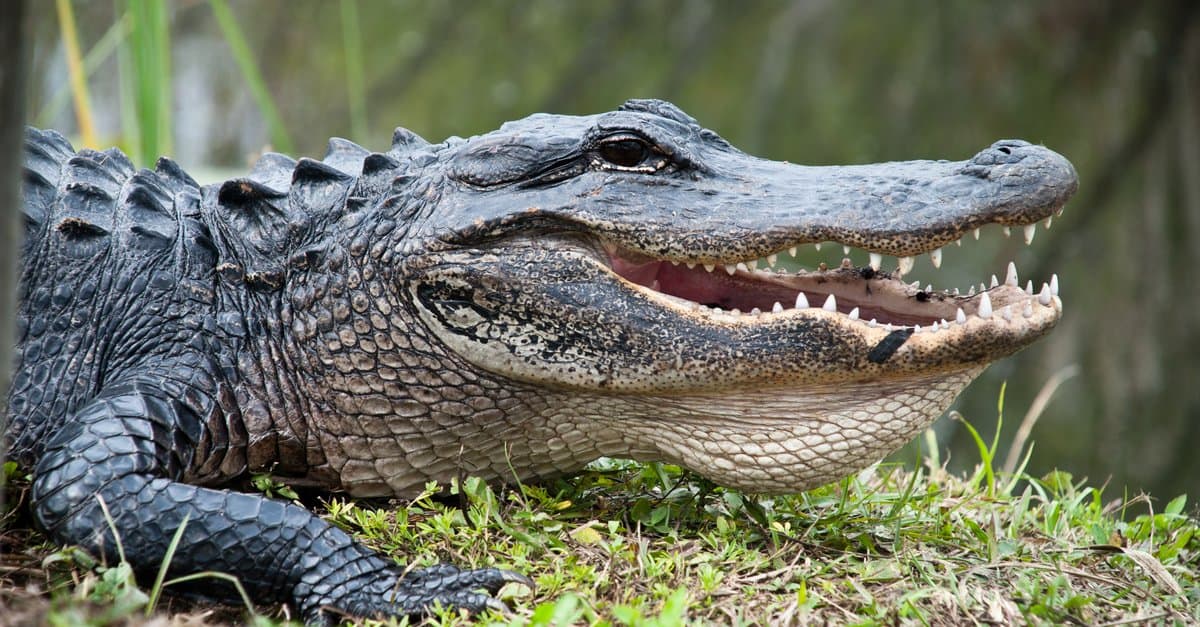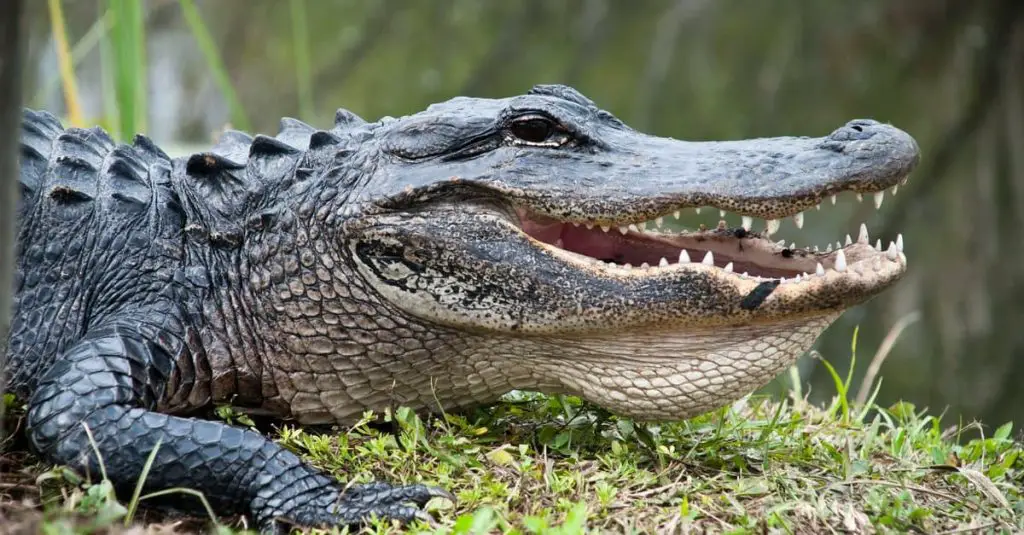Alligators are fascinating creatures that have captured the attention of scientists and animal lovers for decades. One question that arises when studying these reptiles is whether or not they age like other animals.
Although alligators have been around for millions of years, their aging process remains a mystery to many. Some researchers believe that alligators do not age in the same way as humans or other animals, while others argue that they do. Join me as we explore the question, “Do alligators age?” and unravel the mystery behind their longevity.
Alligators do age, just like any other living creature. They can live up to 50 years or more in the wild, with some captive alligators living past 80 years old. As they age, alligators may experience a decline in their overall health and physical abilities, just like humans do. However, they are well adapted to their environment and can live a long and healthy life if they are not threatened by human interference.

Do Alligators Age?
Alligators are fascinating creatures that have been around for millions of years. These reptiles are known for their incredible strength and ability to survive in harsh environments. But have you ever wondered if alligators age? In this article, we will explore the aging process of alligators and answer some common questions about their lifespan.
What is the Lifespan of an Alligator?
Alligators are known for their longevity and can live up to 50-70 years in the wild. However, in captivity, they can live up to 80 years or more. The lifespan of an alligator depends on several factors, including their environment, genetics, and diet.
Alligators grow at a slow rate, and it can take up to ten years for them to reach maturity. Once they reach adulthood, they continue to grow, but at a much slower rate. Alligators that are kept in captivity tend to grow faster than those in the wild, which can affect their lifespan.
Do Alligators Show Signs of Aging?
Yes, alligators do show signs of aging. Like humans, alligators experience age-related changes in their bodies. As they age, their skin becomes less elastic, and they may develop wrinkles. They may also experience a decline in their muscle mass and strength.
Older alligators may also experience changes in their behavior. They may become less active and spend more time basking in the sun. Older alligators may also become less aggressive and may be more tolerant of other alligators.
Factors That Affect the Aging Process of Alligators
Several factors can affect the aging process of alligators. Genetics play a significant role in determining their lifespan. Alligators with strong genetics may live longer than those with weaker genetics. The environment also plays a role in their lifespan. Alligators that live in a healthy environment with access to food and water will likely live longer than those in a harsh environment.
Diet is also an essential factor in the aging process of alligators. Alligators that consume a healthy diet with plenty of nutrients will likely live longer than those that eat a poor diet. In captivity, alligators are provided with a balanced diet that meets their nutritional needs, which can contribute to their longer lifespan.
Benefits of Studying Alligator Aging
Studying alligator aging can provide valuable insights into the aging process of other species, including humans. Alligators have a slower metabolism than mammals, which makes them an excellent model for studying the aging process. Researchers can study the cellular and molecular changes that occur in alligators as they age and apply this knowledge to other species.
Understanding the aging process of alligators can also help conservationists develop strategies to protect them. Alligators are an essential part of the ecosystem and play a vital role in maintaining a healthy balance in their habitat.
Alligators vs. Crocodiles
Alligators and crocodiles are often confused, but they are two different species of reptiles. One of the main differences between the two is their appearance. Alligators have a broad, rounded snout, while crocodiles have a longer, more pointed snout.
Another significant difference between alligators and crocodiles is their habitat. Alligators are found primarily in freshwater habitats, while crocodiles are found in saltwater and freshwater habitats. Additionally, alligators are native to the United States and China, while crocodiles are found in Africa, Australia, and South America.
The Bottom Line
Alligators do age, and their lifespan can vary depending on several factors. While they may experience age-related changes in their bodies, they are still incredibly strong and resilient creatures. Studying alligator aging can provide valuable insights into the aging process of other species and help protect these fascinating reptiles for future generations to enjoy.
Frequently Asked Questions
What is the average lifespan of an alligator?
Alligators are known to live for several decades, with the average lifespan ranging between 35 and 50 years. However, some alligators have been known to live for up to 80 years in the wild. Captive alligators tend to have a longer lifespan, with some living for over 100 years.
The lifespan of an alligator is influenced by various factors, including genetics, habitat, and diet. Alligators that live in the wild tend to have a shorter lifespan compared to those in captivity due to predation, disease, and environmental factors.
Do alligators continue to grow as they age?
Yes, alligators continue to grow as they age, although the rate of growth slows down significantly as they reach maturity. Alligators can grow up to 14 feet in length and weigh up to 1,000 pounds, with males being larger than females.
The growth rate of alligators is influenced by various factors, including food availability, habitat, and genetics. Alligators that have access to abundant food and a suitable habitat tend to grow faster than those in less favorable conditions.
How can you tell the age of an alligator?
Determining the age of an alligator can be challenging as they do not have visible growth rings like trees. However, scientists can estimate the age of an alligator by examining the growth rate of their bones and teeth.
Young alligators have small, pointed teeth, while older alligators have larger, worn teeth. Scientists can also examine the size and shape of the bones to determine the age of an alligator. However, these methods are not always accurate, and there is often a margin of error in age estimations.
What are some signs of aging in alligators?
As alligators age, they may exhibit various signs of aging, including a decrease in mobility and activity levels. Older alligators may also have worn teeth, which can make it difficult for them to catch prey.
Alligators that have lived for several decades may also have scars and injuries from fights with other alligators or encounters with prey. Additionally, older alligators may have a more prominent ridge on their back due to the hardening of their spinal column.
Do alligators die of old age?
Alligators can die of old age, but it is not the most common cause of death. Alligators in the wild may die from predation, disease, or environmental factors before reaching old age. In captivity, alligators can live for several decades and are more likely to die of age-related ailments such as organ failure or infections.
The lifespan of an alligator is influenced by various factors, and not all alligators will live to old age. However, with proper care and a suitable habitat, alligators can live for many years and continue to thrive as they age.
The Secret of Regeneration in… Alligators
In conclusion, alligators do age just like any other living creature on this planet. However, scientists are still studying how long they can live and what factors can affect their lifespan.
Despite their tough exterior, alligators are vulnerable to environmental changes and human activities such as hunting and habitat loss. It is important to protect these ancient creatures and their habitats to ensure their survival for future generations to come.
In the end, alligators may seem like fierce and indestructible predators, but they are just as fragile and important to our ecosystem as any other species. We must continue to learn about and appreciate these fascinating creatures to ensure their longevity and the health of our planet.


